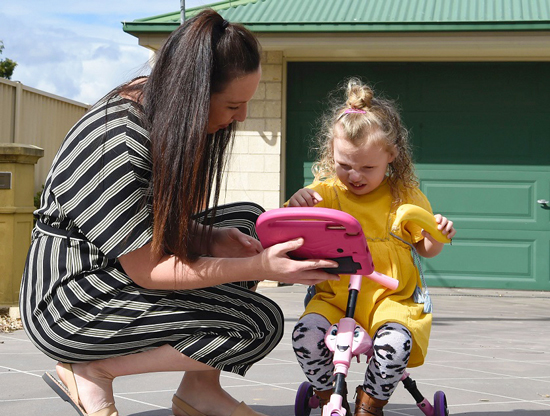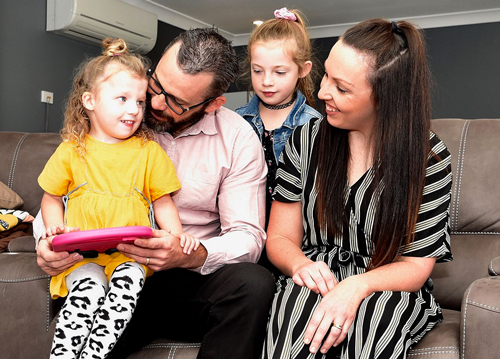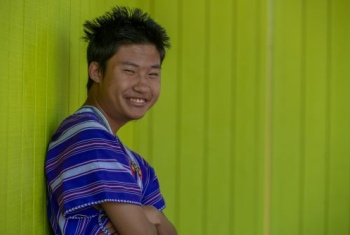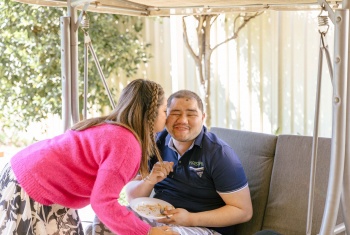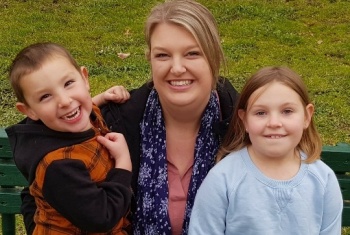With Sophia Harrison’s NDIS funding, Queensland parents Tamara and Gerard, secured her a symbols based communication device. Within two hours, their three-year-old was able to express clearly what she felt like eating for the very first time.
“It was absolutely amazing,” Tamara said emotionally. “Within two hours Sophia was able to say, “I eat banana”. Then, when I asked her, “Would you like a banana?” she said yes. It brought tears to my eyes. Since then she’s been able to tell us what she feels like eating and drinking.”
“A few weeks ago we had her sister, Charlotte’s, birthday. At her daycare, she was able to go around with her device, telling people it was her sister’s birthday.
“All she needed to do was navigate three buttons and she was able to start a conversation, and people were able to ask her questions and understand her responses. She was so happy,” Tamara said.
“Sophia has had the device for over a month now and she just loves it. The novelty hasn’t worn off. She’s able to come up to me and tell me things, and I just think wow, that’s amazing.
“Sophia is also managing the full program on the device. It hasn’t been cut down for her in any way. We can’t believe how quickly she has adapted to it and how she understands it’s her talker and it’s there to help her express herself.”
Tamara said a year ago, Sophia was diagnosed with DiGeorge syndrome, otherwise known as 22q11.2 deletion syndrome.
Still investigating the complexities of her diagnosis, it was evident Sophia had low muscle tone, which was playing havoc with the muscles in her mouth when it came to her speech.
“Sophia doesn’t have the strength in her mouth to get her words out,” Tamara said. “When she’s tired she tends to make more sounds from her throat. We understand her but others often don’t.”
Prior to receiving her communication device, Tamara said Sophia would experience severe meltdowns, absolutely frustrated she couldn’t express what she was really trying to say.
“It got so overwhelming,” she said. “Often Sophia was inconsolable so I would sit down beside her and cry with her because it was just so hard to see. It wasn’t fair.”
Tamara said since Sophia has been with the NDIS, the dynamics in their family home have changed for the better, and the future is looking much brighter for her little girl.
“There’s certainly a lot more harmony in our house,” she said with a laugh.
Over the moon with the communication device and the regular occupational, physio and speech therapies Sophia has in her NDIS plan, the Harrison’s say they couldn’t be happier with the scheme and what it has been able to provide for Sophia and their family.
“Being able to access these therapies on a more regular basis, the continuity of supports, and the communication device… it’s more than we could ever afford to provide. It’s just made a massive difference,” Tamara said.
“The beauty of this communication device, and all the other supports, is Sophia will start school in 18 months and these supports will give her a head start.
“We want her to learn how to use the communication device effectively so it will allow her to be part of a mainstream school rather than needing extra assistance. Hopefully she’ll just breeze through,” Tamara said.
“The NDIS has made a massive difference to our lives, and it will continue to make a huge difference in Sophia’s life, and we couldn’t be more grateful for all of her supports.”
